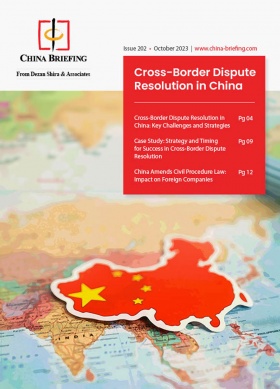How to Ensure Successful ERP Implementation in China?
Successful ERP implementation hinges on cultivating precise expectations, a profound grasp of business essentials, and a meticulous plan, while enlisting a capable implementer and employing shrewd end-user strategies to unleash the system’s transformative power.
It is now widely acknowledged in the business realm that leveraging technology is of paramount importance for fostering both growth and sustainability. An overwhelming majority of businesses, ranging from small to medium enterprises, are actively investing or expressing their willingness to invest in technology, particularly ERP systems. This is aimed at driving innovation and enabling adaptation to the growing complexities within the business landscape.
However, it’s critical to note that recognizing the importance of ERP deployment does not necessarily guarantee a successful implementation. This is true, especially in the context of China, where selecting the appropriate ERP path and fully unlocking the ERP system’s potential pose common challenges for numerous companies.
In this article, we provide valuable insights into the methods that can be employed so that companies can maximize the benefits of their ERP systems.
Understand your own business needs, requirements, and available resources
The strategic goal of ERP deployment is to help organizations optimize their business processes and drive innovation, rather than simply digitalize their intricate and inefficient practices. Consequently, prior to engaging with ERP vendors or any third-party consultants, your initial step should involve conducting an internal assessment of operational pain points, key business objectives, and available internal and external resources.
Formulating a list of inquiries, discussing them with key business leaders, and if possible, establishing channels to gather insights from your China staff, can prove instrumental. Among the various questions, the following can serve as a reference:
- What operational, administrative, or procedural challenges are impeding your organization’s progress or impacting productivity?
- What specific business outcomes should the solution cater to?
- What solution capabilities are must-haves in the ERP modules?
- Are there any external factors, such as regulations, partners, and suppliers, which need to be considered?
- What internal resources are at your disposal?
- Do you have access to external resources?
- Are there any stipulations concerning the implementation timeline?
- What budget are you willing to allocate to the project?
To extract maximum value from ERP implementation, remember to take this opportunity to analyze your end-to-end business architecture and re-engineer processes to establish a seamless integration extending from the customer interface to the back-office operations.
Choose the right ERP path and modules
Each ERP path presents its own set of advantages and limitations. Anticipating that an ERP system can fulfill every need and striving for flawless perfection during ERP deployment or upgrades for your operations in China is a short-sighted approach and may cripple your business’ development.
When choosing among ERP paths and functional modules, companies should base their decision on their unique technical competencies and business requirements, while giving due consideration to software functionality, security, stability, responsiveness, and scalability. Opting for a practical solution that aligns with your business’s scale, encompasses critical operational needs, and possesses the capacity to evolve alongside your business often leads to the most favorable outcomes. This holds particular significance for ERP implementation in China, where the market’s complexity and rapid transformations often surpass initial expectations.
During this phase, it’s advisable to bring in third-party ERP professionals if you lack familiarity with potential ERP paths or struggle to correlate the pros and cons with your operational realities. These advisors can assist in navigating the landscape and making informed decisions that harmonize ERP options with your specific business context.
Evaluate if the ERP-as-a-service solution can meet your business requirements already
It is advisable to explore whether the one-stop ERP-as-a-service solution can meet your business requirements already. These solutions, which are more budget-friendly, easily accessible, and user-centric, come with noteworthy process management and security capabilities. They particularly cater to smaller businesses that lack extensive internal and external resources for complex ERP implementation and maintenance, provided their customization demands aren’t excessively high.
When opting for an ERP-as-a-service solution, solutions encompassing the following features are likely to align more closely with your preferences:
- Flexible architecture – to integrate new apps and technologies to cater to your growing business needs or future changes, which often means the solution is a modular-based platform with open standards and APIs (application programming interface).
- Consumption-based pricing models – so you can dial up or down based on your transaction volumes.
- User-friendly interfaces – so employees can quickly get up to speed.
- Industry-focused editions – so even the standard version can fulfill most of your needs.
- Robust and out-of-the-box analytics capabilities – which can help you make better decisions.
- In combination virtual CFO services – which has turned out to be the most cost-effective and efficient approach for small businesses’ ERP implementation in China.
Establishing an effective strategy to roll out ERP to users in China offices
Keep in mind that ultimately, the most effective ERP system is one that your team finds practical, intuitive to grasp, and empowers them to enhance productivity and efficiency. The least desirable outcome is encountering resistance from your end users, resulting in delayed adoption until it becomes a necessity.
To formulate your strategies, consider the following points:
- Provide clear explanations to help employees grasp the influence of ERP tools on their work efficiency and the advantages it brings to the business at the earliest stage.
- Address cultural obstacles by offering tailored solutions that cater to local requirements and seamlessly integrate.
- Prioritize the incorporation of distinct China-localized functionalities, enabling users to leverage and save time within China’s extensive digital integration landscape.
- Designate a China manager to lead the charge for ERP implementation and maintenance, ensuring alignment with local dynamics.
- Deliver comprehensive training and ongoing support to employees, ensuring they are adept at utilizing the system effectively.
Choosing the right sources of advice
When considering the deployment, upgrade, or migration of ERP systems in China, the immediate inclination might be to seek guidance from ERP vendors. While ERP vendors excel in software configuration, their expertise often falls short in accounting and business management. If your objective is to profoundly elevate the efficiency of your company’s operations and business workflows, it’s prudent to enlist the assistance of professional consulting firms that boast a team comprising financial experts and seasoned ERP advisers, if there are no such talents within your organization.
Managing key transitions and post-implementation support, monitoring, and feedback
Other best practices in ERP implementation include:
- Ongoing maintenance: Establish a plan for ongoing ERP maintenance, updates, and support to address any issues that arise.
- Communication: Communicate the benefits of ERP localization to all stakeholders to ensure buy-in and cooperation.
- Performance monitoring: Continuously monitor the performance and effectiveness of the China ERP system to identify and address any issues promptly.
- User feedback and continuous improvement: Encourage users to provide feedback on their experiences with the system and use their insights to make improvements.
Dezan Shira & Associates’ Client-ERP service helps customers realize optimized financial and management processes without costly and complex setups. Hosted on secure infrastructure, our Client-ERP is maintained by our team of IT and finance experts, and can be integrated with global ERP and local party systems. To arrange a free consultation, please contact china@dezshira.com.
(This article was originally included in the China Briefing magazine August 2023 issue: Empowering Your China Business with Successful ERP Implementation.)
About Us
China Briefing is written and produced by Dezan Shira & Associates. The practice assists foreign investors into China and has done so since 1992 through offices in Beijing, Tianjin, Dalian, Qingdao, Shanghai, Hangzhou, Ningbo, Suzhou, Guangzhou, Dongguan, Zhongshan, Shenzhen, and Hong Kong. Please contact the firm for assistance in China at china@dezshira.com.
Dezan Shira & Associates has offices in Vietnam, Indonesia, Singapore, United States, Germany, Italy, India, Dubai (UAE), and Russia, in addition to our trade research facilities along the Belt & Road Initiative. We also have partner firms assisting foreign investors in The Philippines, Malaysia, Thailand, Bangladesh.
- Previous Article China Monthly Tax Brief: December 2023
- Next Article China’s 2024 Catalogue for Guiding Industry Restructuring









